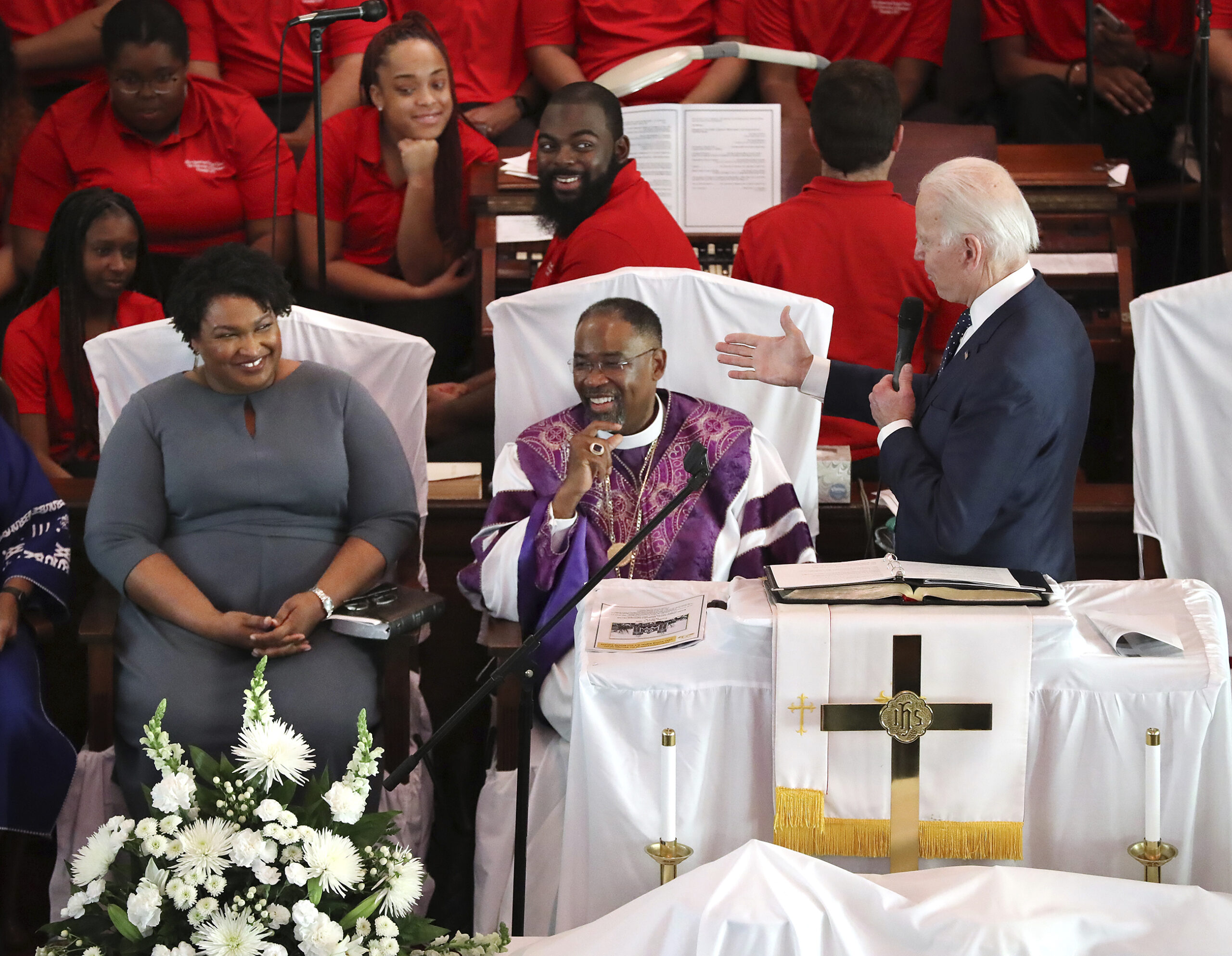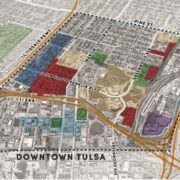
Joe Biden knows that African Americans can never have a fair shot at the American Dream so long as entrenched disparities are allowed to quietly chip away at opportunity. He is running for President to rebuild our economy in a way that finally brings everyone along—and that starts by rooting out systemic racism from our laws, our policies, our institutions, and our hearts.
This mission is more important now than ever before, as the health and economic impacts of COVID-19 have shined a light on—and cruelly exacerbated—the disparities long faced by African Americans. In April 2020, Biden called on the Centers for Disease Control and Prevention to collect more data regarding how COVID-19 is affecting communities, including breaking down its impacts by race. The data we’ve seen so far suggests that African Americans are dying from COVID-19 at a higher rate than whites. Long-standing systemic inequalities are contributing to this disparity—including the fact that African Americans are more likely to be uninsured and to live in communities where they are exposed to high levels of air pollution. African Americans also represent an especially high percentage of the front-line workers putting themselves at greater risk to sustain the economy and keep the rest of the country safe and fed—and are less likely to have a job they can do from home, forcing them to make the difficult choice between their health and a paycheck. While there’s a lot we don’t yet know about COVID-19, we do know that equitable distribution of resources, like testing and medical equipment, can make a difference in fighting the virus. Biden believes this should be a priority and action must be taken now.
COVID-19 is also having a disproportionate economic impact on African American families. African American small businesses have been hit hard, and over 90% of African American-owned businesses are estimated to be shut out of the initial relief program due to preexisting, systemic disparities in lending. This is especially dire given that African American families have less of a financial cushion to fall back on in hard times. Biden has been calling for the nation’s relief and recovery efforts to be equitable and just, including by designing relief programs in ways that avoid methods we know lead to disparate outcomes—so that funds can actually reach African American families, communities, and small businesses. President Trump has not heeded his warnings. If Biden were President today, he would make it a top priority to ensure that African American workers, families, and small businesses got the relief they need and deserve.
Tackling systemic racism and fighting for civil rights has been a driving force throughout Biden’s career in public service. He has a record of fighting for and delivering for the African American community. As a U.S. Senator he co-sponsored the Civil Rights Act of 1990 to protect against employment discrimination and led multiple reauthorizations of the Voting Rights Act, protecting African Americans’ right to vote. Biden also led efforts to reauthorize and extend the Fair Housing Act, and as Delaware’s Senator, was a vocal advocate and supporter of Delaware State University, the state’s Historically Black University.
Today, we need a comprehensive agenda for African Americans with ambition that matches the scale of the challenge and with recognition that race-neutral policies are not a sufficient response to race-based disparities.
The Biden Plan for Black America will:
- Advance the economic mobility of African Americans and close the racial wealth and income gaps.
- Expand access to high-quality education and tackle racial inequity in our education system.
- Make far-reaching investments in ending health disparities by race.
- Strengthen America’s commitment to justice.
- Make the right to vote and the right to equal protection real for African Americans.
- Address environmental justice.
ADVANCE THE ECONOMIC MOBILITY OF AFRICAN AMERICANS AND CLOSE THE RACIAL WEALTH AND INCOME GAPS
Invest in African American Businesses and Entrepreneurs
Approximately 4% of small business owners are African American, even though African Americans make up approximately 13% of the population. To build wealth in African American communities, we must invest in the success of African American businesses and entrepreneurs.
Ensuring equal access to credit and capital. African American businesses often lack the capital they need to succeed. African American businesses are rejected at a rate nearly 20% higher than the white-owned firms. Even worse, African American businesses that do get funding receive only 40% of the funds requested as compared to 70% for white businesses. To increase investment and access to capital, Biden will:
- Double funding for the State Small Business Credit Initiative. The Obama-Biden Administration created the State Small Business Credit Initiative (SSBCI) to support small businesses, driving $10 billion in new lending for each $1 billion in SSBCI funds. Biden will extend the program through 2025 and double its federal funding to $3 billion, driving close to $30 billion of private sector investments to small businesses all told, especially those owned by women and people of color.
- Expand the New Markets Tax Credit, make the program permanent, and double Community Development Financial Institutions (CDFI) funding. The New Markets Tax Credit has helped draw tens of billions of dollars in new capital to low-income communities, providing tax credits to investors in community development organizations that support everything from supermarkets to real estate projects to manufacturing plants. As part of his plan to reinvest in communities across the country, including in rural areas, Biden will also double funding for the Community Development Financial Institutions (CDFI) Fund, which supports local, mission-driven financial institutions in low-income areas around the U.S. This builds on Biden’s proposal to support entrepreneurs in small towns and rural areas by expanding both the Rural Microentrepreneur Assistance Program and the number of Rural Business Investment Companies, to help rural businesses attract capital.
- Improve and expand the Small Business Administration programs that most effectively support African American-owned businesses. The Small Business Administration’s (SBA) programs have been and remain one of the most effective ways of accessing capital for African American-owned businesses. Biden will strengthen these existing programs by:
- Ensuring the SBA has the funding it needs to support African American-owned business and others in the current crisis and beyond. Trump has once again proposed a massive cut of 25% in the SBA budget for FY2021, including a 35% cut in funding to Small Business Development Centers, a 20% cut to the SBA Microloan Program, and significantly increased fees for the 7(a) loan program, which is SBA’s main loan program for small businesses.
- Making permanent the successful Community Advantage loan program, originally created during the Obama-Biden Administration. The program, which provides capital for startups and growing small businesses located in particularly underserved communities through CDFIs and other mission-driven lenders, has been run as a pilot program since 2011. Biden will make this program permanent and reverse rules enacted by the Trump Administration that are making it more difficult for lenders to participate in the program and lend to African American-owned businesses and other businesses located in underserved communities.
Increase opportunities for African American-owned businesses to obtain or participate in federal contracts. In the aftermath of the 2008-2009 financial crisis, well over $100 billion of federal prime contracting dollars were awarded to minority-owned small businesses. And, between 2013 and 2016, the Obama-Biden Administration increased federal prime contract dollars going to Small Disadvantaged Businesses by nearly 30%, from $30.6 billion to $39.1 billion. The Obama-Biden Administration also created an Interagency Task Force on Federal Contracting Opportunities for Small Businesses, which included a focus on contracting opportunities for minority-owned businesses. The Obama-Biden Administration implemented its vision of more equitable access to federal contracts through a variety of channels, including by launching the Federal Procurement Center (FPC) as part of the Commerce Department’s Minority Business Development Agency (MBDA). The FPC, a first-of-its-kind program, helps minority-owned firms apply for and win federal government contracts. As President, Biden will build on these efforts to support the expansion of opportunities for minority-owned small businesses.
Increase funding for the Minority Business Development Agency budget. MBDA plays a critical role in supporting the development and growth of minority-owned businesses around the country, as well as providing needed assistance to federal and state agencies so that they award minority-owned businesses procurement contracts. The Trump Administration has pushed for a 75% cut in MBDA’s budget. Biden would protect and call for increased funding for it.
Protect small and disadvantaged businesses from federal and state contract bundling which often locks out African American-owned smaller firms from effectively bidding on procurement contracts. Biden will build on the anti-bundling provisions of the Small Business Jobs Act of 2010, by having the Office of Management and Budget, SBA, and MBDA conduct a government-wide review of existing contract bundling to determine whether agencies are following existing rules and whether agencies have the ability to further ensure small business participation in federal and state procurement opportunities.
Make sure economic relief because of COVID-19 reaches the African American businesses that need it most. The first installment of the Paycheck Protection Program (PPP) largely left out minority-owned businesses. The Center for Responsible Lending estimates that more than 90% of small businesses owned by people of color will not receive loans. The program is not taking into account the specific challenges that African American businesses face in accessing funding and complying with the program’s requirements. The financial institutions best positioned to help African American small businesses don’t have the systems to quickly deploy the funding in a first-come first-served approach. The second phase set aside $60 billion for community banks and CDFIs, as well as mid-sized banks, which can better serve smaller businesses and minority-owned firms. This is a good start, but more needs to be done:
- Provide AfricanAmerican entrepreneurs and other small business owners technical assistance to help them apply for funding, as well as legal and accounting support to ensure their documentation (such as their financial records, tax filings, and other legal documents) is all in correct order. The Trump Administration and Congress should provide an additional infusion of operating capital to these CDFIs and community-focused lenders to ensure all African American entrepreneurs have access to the technical assistance and support they need.
- Reserve half of all the new PPP funds for small businesses with 50 employees or less, so the bigger and more well-connected aren’t able to win in a first-come, first-served race. While this will help the vast majority of small businesses, it should also help target more funding to minority-owned businesses, given 98% of all minority-and women-owned businesses have fewer than 50 employees.
- Produce a weekly dashboard to show which small businesses are accessing loans. Such a dashboard would help drive better data collection on the beneficiaries of small business support related to the COVID-19 epidemic, including in particular collecting data by gender and race, in order to ensure that the program isn’t leaving out communities, minority- and women-owned businesses, or the smallest businesses.
| SUPPORTING AFRICAN AMERICAN CHURCHES DURING THE COVID-19 CRISIS Shelter-in-place orders, while critical to protecting the health of parishioners, have hit churches hard as collection revenue has virtually stopped. African American churches are especially at-risk during the downturn. One survey put the typical African American membership at just 75 congregants, while others have noted that annual revenue is down since much of it is typically collected during Easter season. At a time when many Americans will seek spiritual assistance and social support, we must ensure the preservation of religious institutions. The decision by Congress to include non-profits, including religious institutions, in the Paycheck Protection Program and Emergency Injury Disaster Loan programs was a critical first step. But the support has not flowed to these institutions the way it should. Well-connected companies were first in line for the support funding.Biden’s True Small Business Fund would also apply to non-profit groups like African American churches. |
Expand African American Homeownership and Access to Affordable, Safe Housing
The gap between African American and white homeownership is larger today than when the Fair Housing Act was passed in 1968. This has contributed to a jaw-dropping racial wealth gap—nearly 1,000%—between median white and African American households. Because home ownership is how most families save and build wealth, the disparity in home ownership is a central driver of the racial wealth gap. As President, Biden will invest $640 billion over 10 years so every American has access to housing that is affordable, stable, safe and healthy, accessible, energy efficient and resilient, and located near good schools and with a reasonable commute to their jobs. Biden will:
Help families buy their first homes and build wealth by creating a new refundable, advanceable tax credit of up to $15,000. Building off of a temporary tax credit expanded as part of the Recovery Act, this tax credit will be permanent and advanceable, meaning that homebuyers receive the tax credit when they make the purchase instead of waiting to receive the assistance when they file taxes the following year.
Tackle racial bias that leads to homes in communities of color being assessed by appraisers below their fair value. Housing in communities primarily comprised of people of color is valued at tens of thousands of dollars below majority-white communities even when all other factors are the same, contributing to the racial wealth gap. To counteract this racial bias, Biden will establish a national standard for housing appraisals that ensures appraisers have adequate training and a full appreciation for neighborhoods and do not hold implicit biases because of a lack of community understanding.
Roll back Trump Administration policies gutting fair lending and fair housing protections, strongly enforce fair credit reporting laws, and create a new Public Credit Reporting Agency. Being able to obtain a credit report is a critical step for homeownership. Biden has long been an advocate for eliminating discrimination in the provision of credit, including his legislation amending the Equal Credit Opportunity Act which prohibited creditors from discriminating against consumer applicants for credit. Today’s credit reports, which are issued by just three large private companies, are rife with problems: they often contain errors, they leave many “credit invisible” due to the sources used to generate a credit score, and they contribute to racial disparities, widening the African American homeownership gap, Biden will create a new public credit reporting agency within the Consumer Financial Protection Bureau to provide consumers with a government option that seeks to minimize racial disparities, for example by ensuring the algorithms used for credit scoring don’t have a discriminatory impact, and by accepting non-traditional sources of data like rental history and utility bills to establish credit.
Protect homeowners and renters from abusive lenders and landlords through a new Homeowner and Renter Bill of Rights. This new Bill of Rights will prevent mortgage brokers from leading borrowers into loans that cost more than appropriate, prevent mortgage servicers from advancing a foreclosure when the homeowner is in the process of receiving a loan modification, give homeowners a private right of action to seek financial redress from mortgage lenders and servicers that violate these protections, and give borrowers the right to a timely notification on the status of their loan modifications and to be able to appeal modification denials.
For more got to: www.joebiden.com/blackamerica









